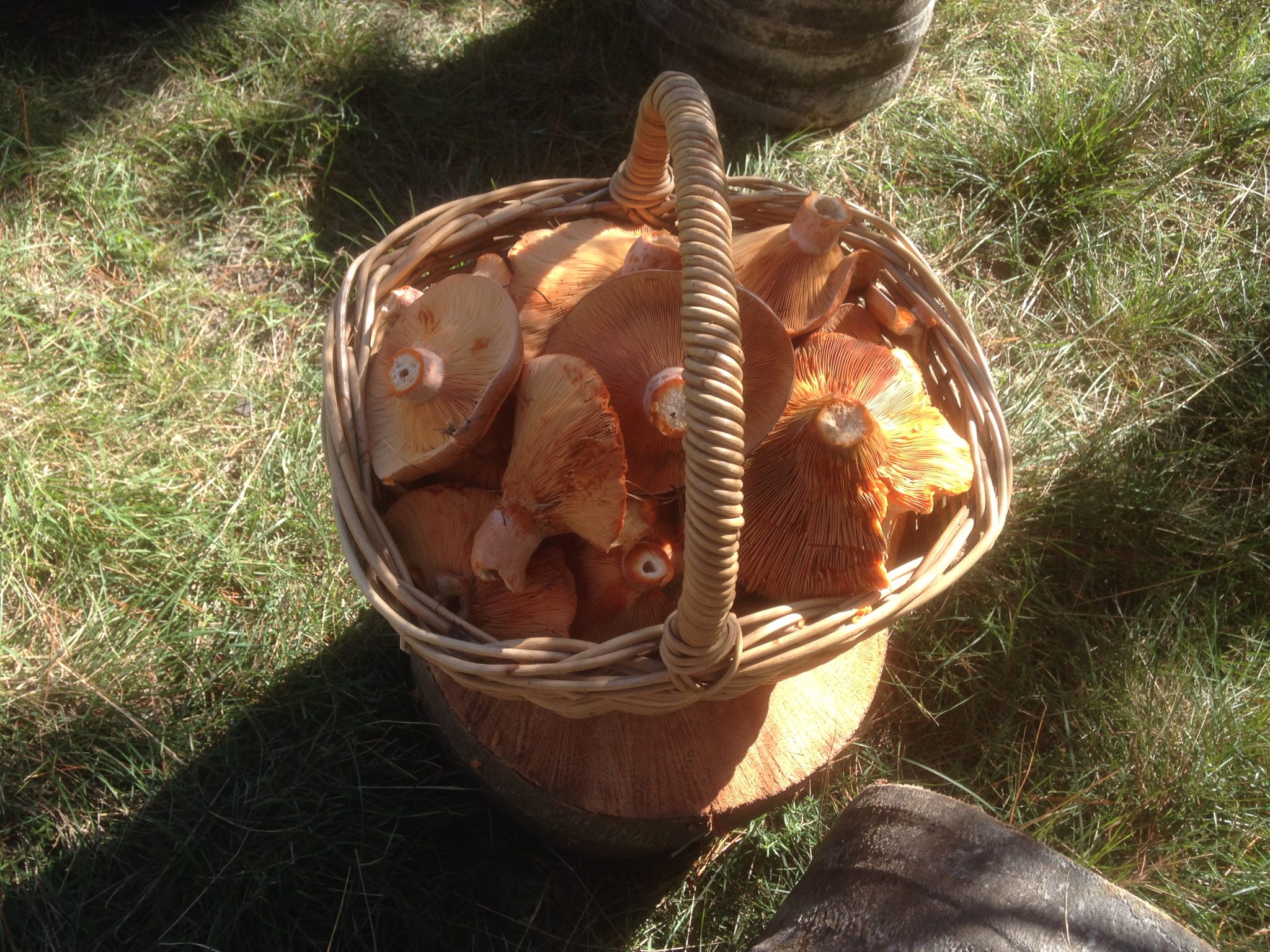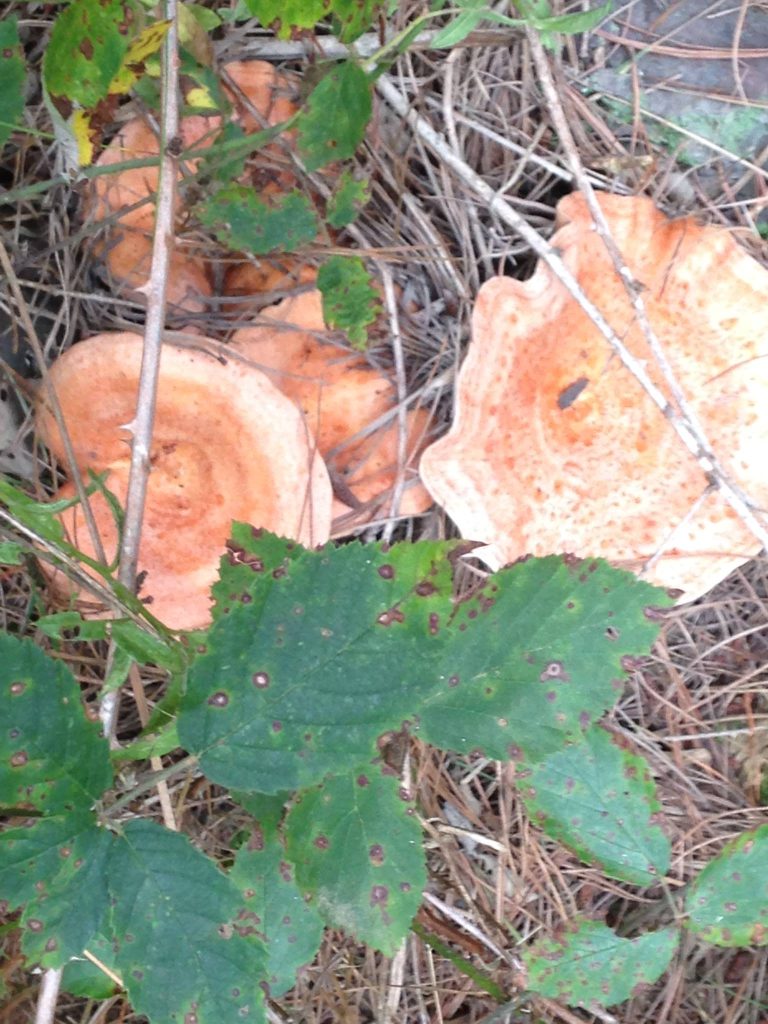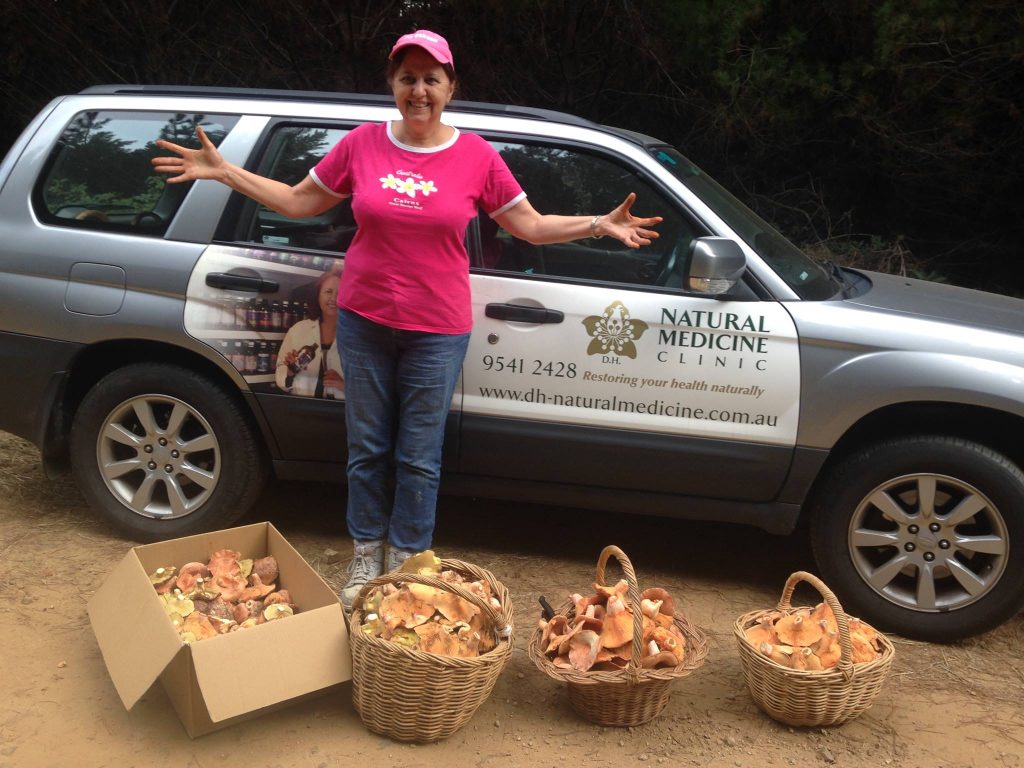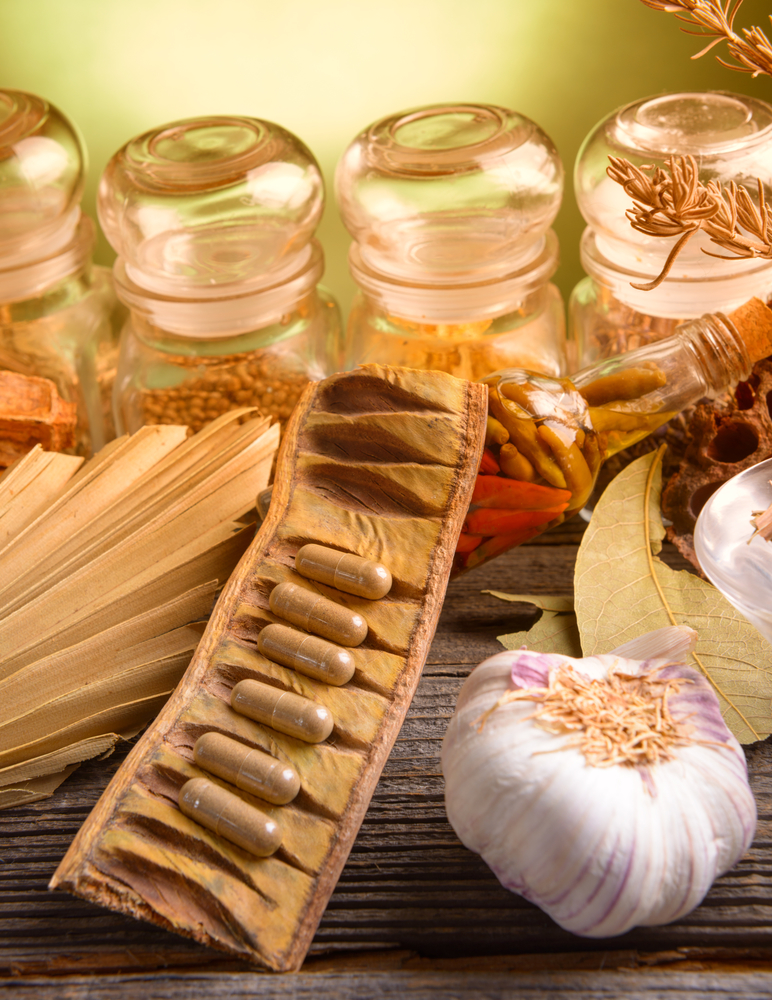
Living in the cold climate has many advantages and foraging for wild mushrooms is one of them. Wild mushrooms season in the Southern Highlands, Blue Mountains, and in Victoria occurs around Easter time and lasts only for a few weeks.
I have been mushroom foraging with my grandparents and parents since I was a little girl in Poland and now in Australia for over 60 years. Walking slowly in a fragrant pine forest is very relaxing, and a form of meditation.
Wild mushrooms versus farmed mushrooms
There are many edible wild mushrooms growing naturally in the cold climate around the world like Reishi, Shitake, Lion’s Mane, Chaga, Saffron Mushrooms, Porcini, Slippery jack, and so on. Some wild mushrooms grow on a wood rot fungus like Chaga or Lion’s Mane, decayed bark of a tree. Practioner’s range herbal manufacturing companies manufacture tinctures from those mushrooms and then they are dispensed by naturopaths and herbalists around the world. Some mushrooms grow on a stump or a base of dead decaying trees like Maitake, Reishi, and Shitake. Their medicinal properties are so wide, and cover every body organ and every medical condition known to humankind.
On the other hand, any farmed mushrooms grown on grain, or other medium do not have those therapeutic properties. Therefore there is another good reason to know well wild mushrooms and how to preserve them and cook them.
Medicinal properties of Saffron Mushrooms
In the Australian cold climate pine forest you can find Saffron mushrooms and Slippery Jack. Saffron mushrooms, Lactarius delicious is also known as Pine mushrooms. You will be amazed to know that pine mushrooms are not just delicious but also contain high quantities of vitamins and minerals that are very beneficial for your health.
Saffron mushrooms have proven benefits as they are rich in vitamins, minerals, and antioxidant properties. They also help improve our general well-being and can even lower the risk of heart diseases and inflammation.
As mentioned above, pine mushrooms are a rich source of riboflavin and niacin, which are essential vitamins that help reduce the risk of heart diseases.
Pine mushrooms also contain various minerals like copper, zinc, iron, magnesium, and manganese that help improve your immune system.
Pine mushrooms are a good source of Vitamin D, which can help treat various skin disorders like psoriasis, eczema, and acne. They also contain proteins that can help in treating gastrointestinal disorders.
Pine mushrooms are also rich in Vitamin E, which is essential for the growth of new skin cells and also helps keep your body healthy. Most of the health benefits of pine mushrooms are because they contain antioxidants, fibre, and vitamins.
These mushrooms also have low calories and are good for people who are on a diet. They can also help reduce cholesterol, blood pressure, and prevent certain types of cancers.
The Vitamin C content in pine mushrooms can help treat chronic diseases or infections like tuberculosis or measles.
However, I strongly suggest if you are not sure whether or not they are edible not to touch them. But once you know what you are dealing with, there are so many ways you can cook and preserve them.
This is why I run mushroom foraging and preserving/cooking workshops. They are run during the “mushroom season” in April and May. Please check my Danuta Hulajko or DH Natural Medicine Clinic Facebook Page or Events on Facebook. I will show you how you can have an endless supply of mushrooms until the next year and how to cook and preserve them.
If you would like to know more about how the DH-Natural Medicine Clinic can help you, please call us now on
(02) 4854 0205
 Danuta Hulajko is a Naturopath, international speaker and the founder & practitioner at the DH Natural Medicine Clinic and www.healingremedies.com.au in the Southern Highlands
Danuta Hulajko is a Naturopath, international speaker and the founder & practitioner at the DH Natural Medicine Clinic and www.healingremedies.com.au in the Southern Highlands
Danuta specialises in Allergies, Anti-Aging, Auto-Immune Conditions, Cardiovascular Conditions, Female Reproductive, Long Covid, Menopause, Mould Toxicity, Skin Conditions, Stress and Insomnia and Thyroid Dysfunction.
For more information please go to our website. You can also follow Danuta Hulajko’s work, events, seminars, expos, latest health research, her health tips and advice on Facebook, LinkedIn and Instagram.



